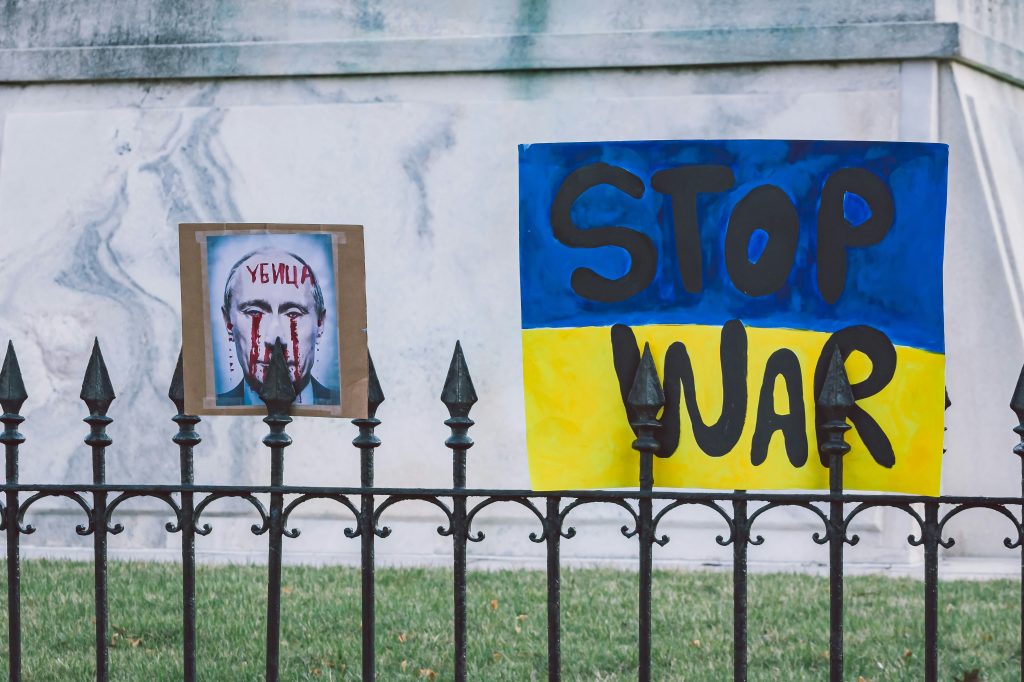Why Putin does not want peace in Ukraine

Vladimir Putin does not want peace in Ukraine, even on the very favourable terms for Russia that Donald Trump is prepared to impose on the Ukrainians and Europeans. For several weeks now, this has been clear to almost all observers, except, it seems, Donald Trump himself, who continues to behave as if Vladimir Putin were acting in good faith.
How can we explain the Russian president’s refusal to accept the olive branch offered by an American president who, even before any negotiations, is prepared to recognise Russian sovereignty over the conquered territories and prevent Ukraine from joining NATO, while largely washing his hands of its future fate?
There are several converging explanations for this seemingly surprising behaviour.
1 Vladimir Putin wants above all to Belarusianise Ukraine
Firstly, Vladimir Putin is not really interested in Donbass and Luhansk. These are now devastated regions with infrastructure in ruins, as evidenced by the current shortage of drinking water. Their economies were dominated by coal mining and largely obsolete heavy industries that will not contribute much to Russia’s future.
Territorial continuity with Crimea and total control of the Sea of Azov are significant gains for Russian imperialism. Nevertheless, these gains remain secondary to Vladimir Putin’s central war aim: to gain control of Ukraine as a whole, turning it into another Belarus and reintegrating it into Russia’s sphere of influence without necessarily having to occupy it militarily in its entirety. A democratic Ukraine, member of the European Union, developing economically as rapidly as Poland, would remain in his eyes, even if it lost a significant part of its territory, too dangerous a threat to his autocratic and kleptocratic regime.
2 He overestimates Russia’s position of strength.
In an autocratic regime such as Putin’s, informing leaders honestly often proves dangerous. Despite the serious setbacks suffered by his armies over the past three years, the hundreds of thousands of soldiers killed and maimed, and the thousands of tanks destroyed, flattered by the courtiers who surround him and misinformed by the misleading reports of his generals, who systematically underestimate losses and just as systematically embellish successes, Vladimir Putin probably still believes that the Russian army is on the verge of military victory on the ground and that Ukrainian forces will soon collapse if he keeps up the pressure. The same applies to the state of the Russian economy, whose leaders are certainly trying to hide from him as much as possible the state of decay and the significant effect of Western sanctions. Vladimir Putin therefore has a structural tendency to believe that he is in a better position than he actually is.
3 Peace would endanger his regime
Since 2022, the Russian president has reoriented Russia’s entire economy towards war and all his political rhetoric towards imperial conquest. In such a context, peace in Ukraine would be a major destabilising factor for his power because of its consequences for the economy and the population. The salaries of soldiers fighting in Ukraine are incomparable to those in Russia. They thus help to mitigate the economic consequences of the war on the most vulnerable populations, particularly in poor regions of the country. The return of peace would highlight the extent of the deterioration of the Russian civilian economy and the massive effects of the lack of investment accumulated since 2022 in the maintenance of the country’s basic infrastructure. It would also give rise to serious social and political tensions with the return to civilian life of hundreds of thousands of demobilised veterans. Many of them are alcoholics or drug addicts and often carry untreated communicable diseases such as AIDS, hepatitis C or tuberculosis. They have experienced the horrors of the front line and the total absence of any moral sense or rule of law within the Russian army. The stories about the treatment of Russian soldiers by their officers are frightening.
The reintegration of these veterans into Russian society, with all the violence that would accompany it, would inevitably be a much more difficult challenge to overcome than the return of soldiers from Vietnam was for American society. These veterans will also do little to help Russian society overcome its increasingly acute shortage of skilled labour. In all these respects, Vladimir Putin therefore has an interest in continuing the war, whatever the military outcome.
4 China does not want a Pax Americana in Ukraine
Last but not least, despite everything Donald Trump is willing to give in to him, Vladimir Putin cannot afford to give him the opportunity to appear as the one who stopped the war in Ukraine and who could therefore deserve the Nobel Peace Prize.
With this war, Russia has become highly dependent on China for most of its essential supplies and for the sale of its gas and oil. Weakened by the war, it is on the verge of becoming a vassal state of Beijing, despite its status as a nuclear power and its president’s dreams of imperial grandeur.
However, in the context of Sino-American rivalry, Xi Jinping cannot tolerate either a real and lasting rapprochement between Russia and the United States or a strengthening of Trump’s position on the international stage. He also probably wants to maintain a lasting source of distraction for the West in Europe, preventing it from concentrating its forces on containing China in Asia.
Even if Putin wanted to make peace in Ukraine under Trump’s aegis, which for the reasons mentioned above is probably not the case, he would probably be unable to do so because Xi Jinping would prevent him.
In short, for all these reasons, only a military defeat on the ground and the strengthening of economic sanctions against Russia could ultimately lead Vladimir Putin to agree to cease fighting in Ukraine.




